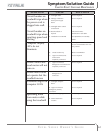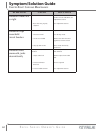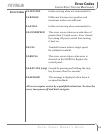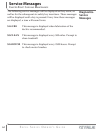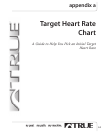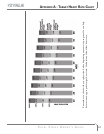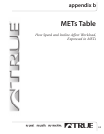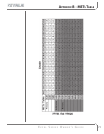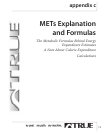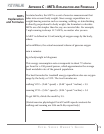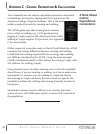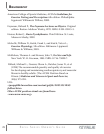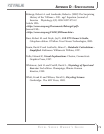
E X C E L S E R I E S O W N E R ’ S G U I D E
APPENDIX C - METS EXPLANATION AND FORMULAS
As stated earlier, the MET is a unit of exercise measurement that
takes into account body weight. Since energy expenditure in a
weight-bearing exercise such as running, walking, or stairclimbing
is directly proportional to body weight, the formulas to calculate
METs are a bit simpler than for, say, an exercise bike. For example,
7 mph running is always 11.7 METs, no matter who you are.
A MET is defined as 3.5 ml/min/kg of oxygen usage by the body,
where:
ml is milliliters, the actual measured volume of gaseous oxygen
min is minutes
kg is bodyweight in kilograms
This energy consumption rate corresponds to about 72 calories
per hour for a 150-pound person, which approximates the average
basal metabolic rate of the general population.
The best formulas for treadmill energy expenditure also use oxygen
usage by the body, or VO2. The two formulas are:
walking VO2 = (2.68 * speed) + (0.48 * speed * incline) + 3.5
running VO2 = (5.36 * speed) + (0.24 * speed * incline) + 3.5
To get METs, divide the result by 3.5.
(Noted exercise physiologist David Costill's speed constants for
walking and running are 3.06 and 4.86, respectively.)
METs
Explanation
and Formulas
75




